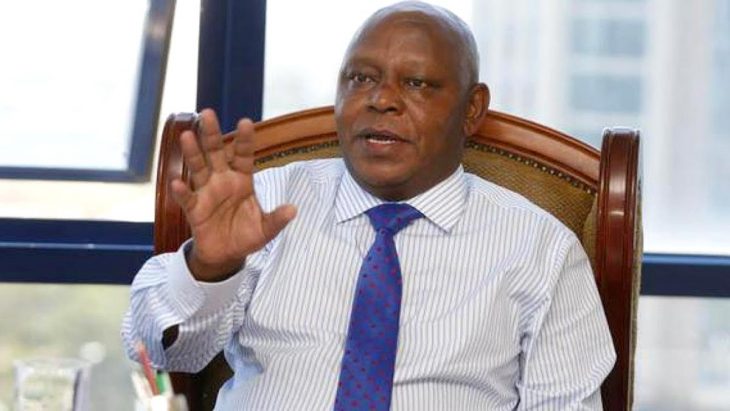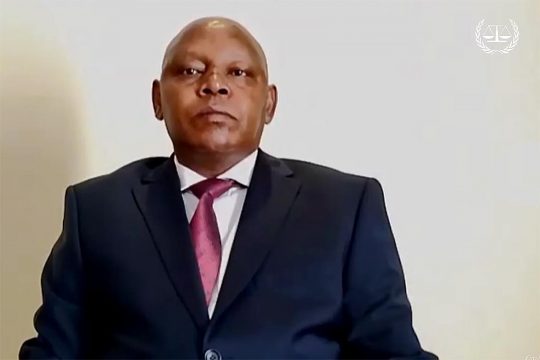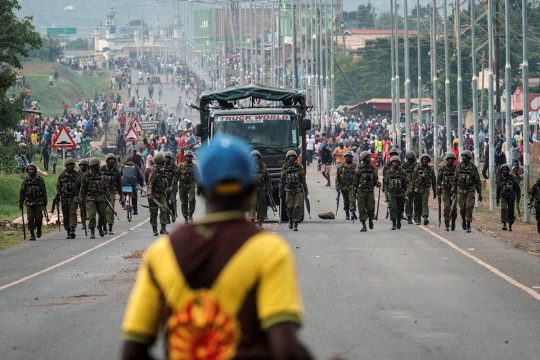The charges against Kenyan lawyer Paul Gicheru concerned the alleged bribery of a number of witnesses in the International Criminal Court (ICC) case against William Ruto, who is now the President of Kenya. Gicheru passed away at home on 26 September 2022 after lunching at a restaurant. His son, who had been with him at the restaurant, suffered abdominal pains but recovered. Questions remain unanswered about his death, but the ICC has shied away from expressing any concerns about Gicheru’s sudden demise.
The verdict date at the ICC was expected shortly when he passed away.
Michael G Karnavas, who was Gicheru’s lawyer at the ICC, calls the way the investigation into his death is carried out by the Kenyan authorities “rather unusual”, saying he has been given no access nor details: “They did collect samples of the food and they tested it. But what the autopsy report actually contains … I don't know what the toxicology shows”.
He was equally surprised that the ICC didn’t proactively concern itself: “What I would have expected, at least as a matter of concern for the office of the prosecutor, is not so much to have intervened, but at least looked into it and for somebody to be present during the autopsy. To have requested to see the investigation reports.” He says none of this was done.
Tom Maliti, journalist and long-term observer of the Kenya trials at the ICC notes that there was “contradicting information coming from the police” immediately after the death but “there are no obvious indicators that this individual's death was anything but a natural death”. He adds that Gicheru’s family lawyer said the death was not suspicious.
But the circumstances itself of the death remain suspicious and raised concerns for Geoffrey Lugano of Kenyatta university: “The police did an autopsy, but there was no conclusive proof. Now, what was the cause of the death? It still remains vague. He might have died of a natural death. But you don't really know, actually, the truth of what happened”.
“A pattern of mysterious deaths”
That lack of clarity is bolstered by other reported deaths of those allegedly connected to an alleged bribery scheme to suborn witnesses in the ICC Kenya trials. “It's a pattern of mysterious deaths,” says Lugano. At least one individual, Meshack Yebei was brutally murdered seven years ago. He had been a witness for the prosecution but was implicated in the alleged scheme to corrupt. The ICC confirmed that Yebei had been under their protection. Defence said he had been a critical witness for them.
In July this year, Christopher Koech, a teacher who was said to be in the ICC list of witnesses in relation to the 2007 post-election violence, reportedly died under unclear circumstances after he was admitted to the Kakamega County Referral Hospital, with suspicion of poisoning.
No case to answer
The Kenya trials collapsed as witnesses recanted testimony. One of those trials was against William Ruto, the current the president of Kenya, who, while deputy president was defended by a man who became later the ICC’s own prosecutor, Karim Kahn.
When Gicheru died, “the rumour mill became active” says Maliti. “The man [Gicheru] was alleged to have been managing the bribery scheme on behalf of, he's now president of Kenya. And that man had just been inaugurated as president.”
The ICC Kenya investigation was initiated in 2010 by then prosecutor Luis Moreno Ocampo and at first seemed to have strong backing across Kenyan society. But when Ruto and another defendant rival politician Uhuru Kenyatta joined forces against the ICC, they developed an effective public campaign likening it to a neo-colonial institution. And in court in The Hague itself, cases gradually stuck as witnesses recanted. In the end the judges ruled there was no cases to answer.
The issues with the Kenya trials lead to a separate internal review which itself was widely quoted by the court’s Independent Expert Review. When Gicheru handed himself over to the court in 2020, apparently to clear his name of the allegations that he had masterminded the bribery schemes on behalf of his close political friend William Ruto, those close to the ICC Kenya investigation saw it as an opportunity to clarify their narrative.
There are other potential defendants in the Kenya Situation against whom arrest warrants have been issued against: Walter Barasa and Philip Bett. But Maliti says the men were not eager to clear their names: “For them individually, there's no pressure to get the ICC indictment off their backs”. Gicheru was in a different category: “It was clear that the prosecution viewed Paul Gicheru as the manager, as a person who was connecting between different parts of this bribery scheme that the prosecution alleges existed”, Maliti says.
During Gicheru’s trial, Kenyan observers watched carefully to see whether this bribery case could be a way for the Hague’s prosecutors to again go after Kenya’s senior political leader. Karnavas agrees: “I'm not saying that he [Ruto] was involved in any of this, but obviously, you know, if the [judge’s] decision was against us, we might have had some ramifications against him.” But, even though “witnesses did testify that they were told that the money that they were receiving was coming from William Ruto from to Gicheru” says Maliti, “there was no attempt [by the ICC prosecutor] to use this case to portray Ruto in a bad light in any form or shape. So, I think the calculation was that politically, it didn't serve any purpose”.
Karim Khan’s elusive role
The ICC’s current prosecutor, Khan, had recused himself from the Gicheru proceedings, cutting his current identity off from his previous one as defence counsel for Ruto, delegating decisions to one of his deputies. But in a recent piece for EJIL Talk Goran Sluiter and Thomas Hamilton argue that the prosecutor’s self-recusal “does not resolve all the issues”.
For Sluiter and Hamilton the issue is that “the prosecutor has full authority over management and resources within his office. It is difficult to imagine how someone other than M. Khan could, for example, decide on allocating more resources to the Kenya situation or, if the evidence makes that possible, re-opening the proceedings against his former client, M. Ruto. It is equally difficult to imagine how someone other than M. Khan could issue a robust statement in reaction to the death of M. Gicheru.”
What the case may have told us
For the many thousands of people who were displaced or suffered from ethic violence during the 2007 and 2008 post-election violence, “the ICC was the only platform under which these things were being canvassed”, notes Lugano.
But the Gicheru case was also a test of how the ICC deals with alleged efforts by powerful figures to undermine its authority. Observers of the court did not find this case added “anything new into the contours of how the ICC works” says Maliti, and “a lot of the issues around bribery or witnesses’ intimidation, are a clear failure of the ICC's protection framework”.
For Lugano, the trial was “really critical” because the details provided in court “gave a much-needed legitimacy to these claims of witnesses being disappeared and interfered with”. In that way “it kind of provided a formal acknowledgement and give voice to the voiceless, the silenced victims who could not speak for themselves and even the civil society locally and the judicial system had not be able to stand up to this political elite”.
The ICC terminated proceedings against Gicheru on 14 October. It drew a thick black line under this case. To Lugano, with a verdict against Gicheru, at least you “could start asking questions about who was the man, the main man behind it. But now that he's gone and we can never know that, then it's a black hole. Nobody knows.”








